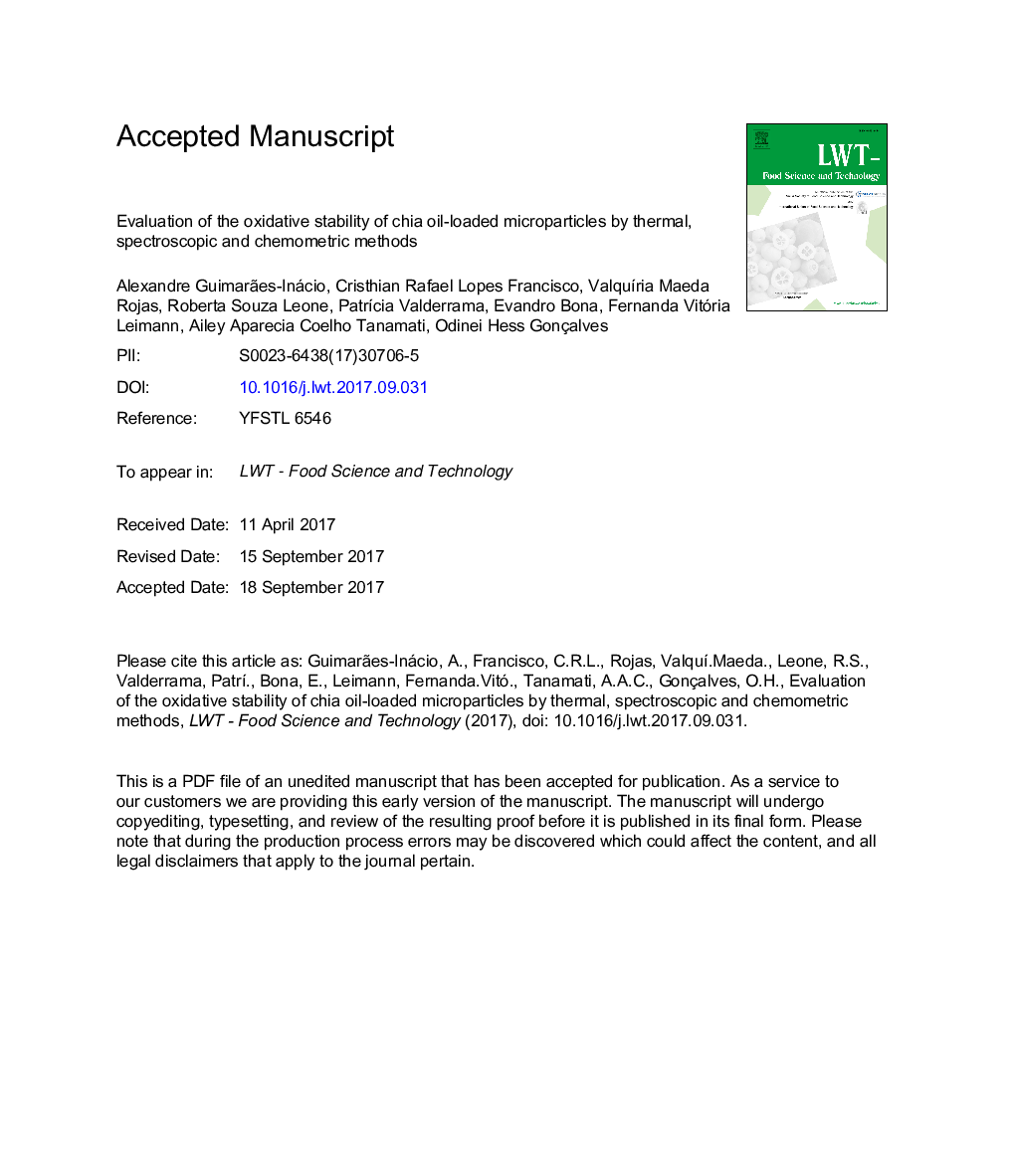| Article ID | Journal | Published Year | Pages | File Type |
|---|---|---|---|---|
| 8892144 | LWT - Food Science and Technology | 2018 | 44 Pages |
Abstract
Chia oil has been widely studied due to its benefits to human health, being source of important omega-3 and omega-6. Encapsulation has been studied in order to protect the oil from thermal degradation. In this work, oil from chia seeds was microencapsulated in carnauba wax and thermal stability was evaluated not only by thermal methods but also Spectroscopy and chemometric based analyses. High encapsulation efficiency of both omega-3 and -6 (up to 97%) was verified. Particles presented micrometric sizes, spherical shape and no fissures. Differential Scanning Calorimetry was applied in isothermal and non-isothermal modes and kinetic parameters were determined using the Ozawa-Flynn-Wall (OFW) method. An effective protection of the chia oil was verified by an increase in the oxidative stability in both isothermal (activation energy increased from 73.5 ± 1.5 to 91.8 ± 1.6 kJ molâ1) and non-isothermal (from 87.4 ± 2.1 to 97.3 ± 2.9 kJ molâ1) tests. Increase in the onset oxidation temperature and in the oxidation induction time were also detected. Chia oil and oil-loaded microparticles were subjected to accelerated stability test. Degradation was evaluated by the UV-Vis spectroscopy coupled to chemometry and also by the extinction coefficients, corroborating the increase in the oxidative stability.
Related Topics
Life Sciences
Agricultural and Biological Sciences
Food Science
Authors
Alexandre Guimarães-Inácio, Cristhian Rafael Lopes Francisco, ValquÃria Maeda Rojas, Roberta de Souza Leone, PatrÃcia Valderrama, Evandro Bona, Fernanda Vitória Leimann, Ailey Aparecia Coelho Tanamati, Odinei Hess Gonçalves,
